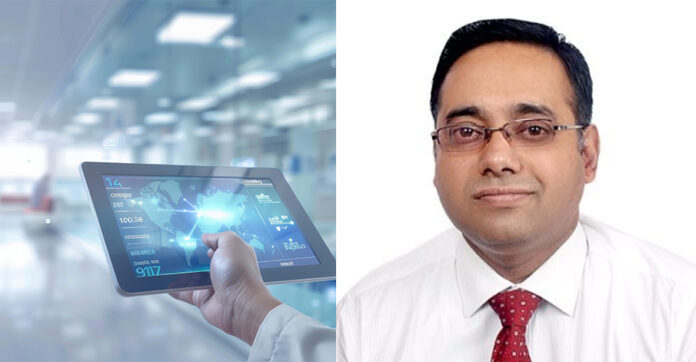
With the vision of building smart hospitals, India is advancing in healthcare management by developing better AI-integrated and data-driven systems. From EHR (Electronic Health Records) to telemedicine, the foundations of digital health have been laid, and hospitals are becoming smart ecosystems powered by emerging technologies. The Government of India has always supported this transition. The Ayushman Bharat Digital Mission (ABDM), telemedicine expansion, and national health registries have created the framework for integration and digital record-keeping. Such initiatives have encouraged hospitals to embrace automation, predictive analytics, and connected devices. This momentum is now setting up the stage for Smart Hospitals 2.0, where technology does more than digitalize because it humanizes care, streamlines operations, and empowers both doctors and patients.
Evolution Of Healthcare Technology
During the crucial stage of advancement in healthcare, the emphasis was placed on digitization and basic connectivity that began with the preservation of electronic health records and the replacement of paper files with digital records. However, Smart Hospitals 2.0 goes beyond this because it assists in connecting clinical workflows, assets, and patients in real-time. IoT (Internet of Things) sensors will be able to monitor equipment (beds and ventilators) and human resources, saving time on searching for equipment and decreasing idle capacity.
AI-Powered Predictions and Preventive Care
Artificial Intelligence allows hospitals to work with huge amounts of medical data to predict patient outcomes and detect possible health risks. Besides, it can help anticipate patient deterioration, and therefore, healthcare providers can engage in preventive action before emergency circumstances occur. To assist patients, the Ministry of Health and Family Welfare (MoHFW) has developed AI tools such as the Clinical Decision Support System (CDSS) that simplifies patient complaint filing and provides AI-generated suggestions on the differential diagnosis to help with patient complaints.
Internet of Things (IoT) in Real-Time Monitoring and Remote Care.
IoTs link medical devices and tools, which can be used to monitor patient conditions and vital organs in real-time. The IoT-enabled devices can record parameters like heart rate, blood pressure, and oxygen level and transmit the data to the healthcare provider to constantly monitor it. This connectivity helps in facilitating remote consultations and telemedicine, making healthcare more accessible, particularly in rural locations. The eSanjeevani telemedicine service has performed more than 410 million teleconsultations by April 2025, using IoT solutions to enable remote patient monitoring and consultation services.
Achieving Patient-Centric Expectations.
Today, patients expect personalized, timely, and effective medical services. To fulfill these expectations, smart hospitals use technology to create personalized treatment plans and minimize waiting time, as well as improve their patients ‘ overall experience. In particular, using AI, one can examine the data concerning a patient and suggest individual treatment options, whereas with the help of IoT devices, patients and their families can be informed about the real-time updates on the patient’s status.
The Evolving Healthcare requirements and the technology.
Since India is a country that has the greatest population in the world, the workload of medical services is also growing every single day. This is the reason why traditional healthcare models can not be sufficient, and they necessitate the adoption of technology to meet these evolving needs. The increased demand can be addressed by technological advancements in AI, IoT, and automation services to make it more efficient, less prone to human error, and more focused on patients.
Challenges and Considerations
Despite the numerous benefits of AI and IoT implementation in healthcare, there are a number of challenges that need special attention.
The privacy and security of the data should be the priority because the accumulation and storage of patient-sensitive information demand significant actions in order to avoid the breach of any personal and highly sensitive information. Secondly, Interoperability is another issue because different healthcare systems and devices need to communicate with one another and share data to implement it successfully. In addition, infrastructure, including an effective internet connection and digital literacy, should also be available in order to enable the successful adoption of smart healthcare technologies, particularly in rural communities and underserved groups.
It is important to address these problems to make the most of the potential of smart Indian hospitals and record positive results regarding patient care and efficiency.
The future of Indian healthcare is Smart Hospitals 2.0, where technology will enhance efficiency in operations and care of the patients. The combination of AI with the IoT is transforming the delivery of healthcare to become more personal, available, and effective. The digital healthcare revolution is soon to be spearheaded by India with the consistent government support and investment by the private sector, making sure that every citizen of the country is provided with quality healthcare.






